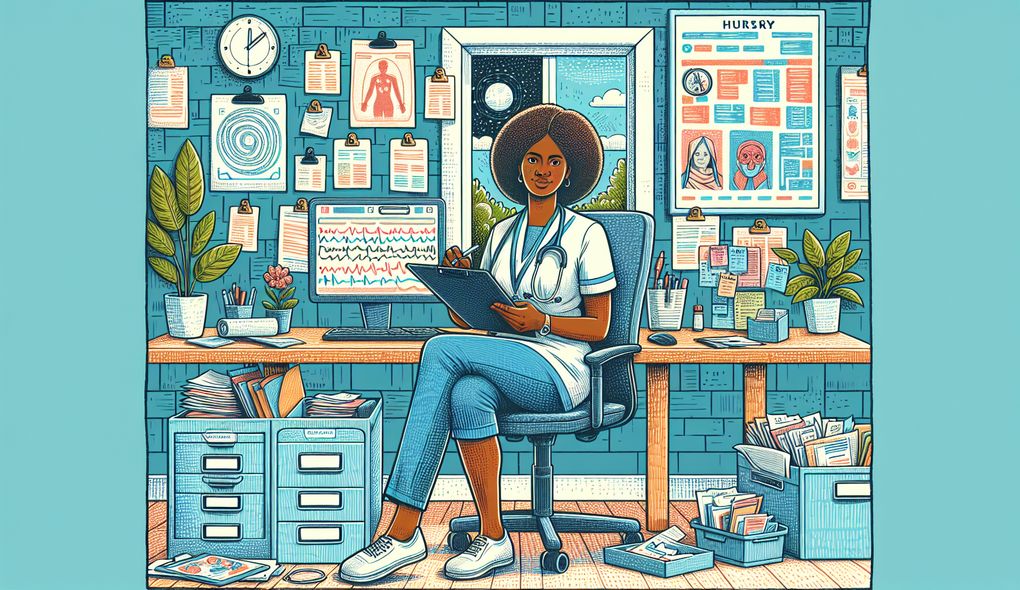Can you give an example of a time when you actively participated in multidisciplinary team meetings to discuss patient care and improvements?
SENIOR LEVEL

Sample answer to the question:
Yes, I can give you an example of a time when I actively participated in multidisciplinary team meetings to discuss patient care and improvements. In my previous role as a Nurse Case Manager, I was assigned to a complex patient case that required collaboration with various healthcare professionals. During our team meetings, we discussed the patient's condition, shared information and insights, and collectively determined the best course of action for the patient's care. I actively contributed my clinical expertise, providing input on the patient's specific needs and advocating for their well-being. Through these meetings, we were able to identify areas for improvement in the patient's care plan and make necessary adjustments to ensure their optimal outcomes. It was a collaborative effort that resulted in enhanced patient care and a more streamlined approach to managing similar cases in the future.
Here is a more solid answer:
Certainly! In my role as a Nurse Case Manager, I actively participated in multidisciplinary team meetings to discuss patient care and improvements. One notable example was when we encountered a complex patient case involving a patient with multiple chronic conditions. During the team meetings, we shared valuable insights and expertise from various disciplines, including physicians, specialists, therapists, and social workers. I actively contributed my analytical and problem-solving skills by assessing the patient's needs, reviewing their medical history and current treatment plans, and identifying areas for improvement. Through effective communication and interpersonal skills, I collaborated with the team to develop a comprehensive care plan that addressed all aspects of the patient's health. This involved implementing interventions, coordinating appointments and referrals, and ensuring the patient had access to necessary resources and support. Our collaborative efforts resulted in improved patient outcomes, such as reduced hospital readmissions and enhanced patient satisfaction. Additionally, the multidisciplinary team meetings allowed us to align our goals, share knowledge about electronic health records (EHR) systems, and explore innovative ways to deliver high-quality and cost-effective care. Overall, actively participating in these team meetings played a vital role in enhancing patient care and achieving positive results.
Why is this a more solid answer?
The solid answer expands on the basic answer by providing specific details about the patient case and the candidate's contributions. It highlights the candidate's strong analytical and problem-solving skills, effective communication and interpersonal skills, and knowledge of healthcare technology. It also mentions the outcomes achieved through the collaborative efforts. However, it could still be improved by providing more concrete examples of the candidate's leadership abilities and experience in managing patient cases.
An example of a exceptional answer:
Absolutely! Let me share with you an exceptional example of when I actively participated in multidisciplinary team meetings to discuss patient care and improvements. In my previous role as a Nurse Case Manager, I encountered a challenging patient case involving an elderly patient with multiple comorbidities who required intricate care coordination. During the team meetings, which consisted of physicians, nurses, social workers, and specialists, I took a leadership role in managing the patient's case. Utilizing my strong analytical and problem-solving skills, I thoroughly assessed the patient's medical history, laboratory results, and medication regimen. I led discussions on potential improvements in care, drawing upon my experience and expertise in managing similar cases. Furthermore, I effectively communicated with the team, ensuring everyone had a voice and that our discussions were productive. To leverage healthcare technology, I initiated the implementation of an electronic health records (EHR) system to facilitate seamless information sharing and enhance patient safety. Through active collaboration, we developed a comprehensive care plan for the patient, including regular monitoring, medication adjustments, and specialist consultations. This holistic approach resulted in improved health outcomes, reduced hospital readmissions, and increased patient satisfaction. Additionally, I facilitated educational sessions for the team, sharing valuable insights on managing complex patient cases. The multidisciplinary team meetings became an invaluable platform for fostering collaboration, ensuring seamless care transitions, and continuously improving patient care. It was fulfilling to witness the positive impact of our efforts on the patient's overall well-being.
Why is this an exceptional answer?
The exceptional answer provides a detailed and engaging example of the candidate's active participation in multidisciplinary team meetings. It showcases strong leadership abilities and experience in managing complex patient cases. The candidate effectively demonstrates their strong analytical and problem-solving skills, effective communication and interpersonal skills, and knowledge of healthcare technology. The answer also highlights the positive outcomes achieved and the candidate's proactive efforts in sharing insights and facilitating educational sessions. It exceeds the expectations of the job description and provides a compelling narrative of the candidate's capabilities in this area.
How to prepare for this question:
- Reflect on past experiences where you actively participated in multidisciplinary team meetings for patient care and improvements. Think about the specific contributions you made and the outcomes achieved.
- Familiarize yourself with different healthcare disciplines and their roles in patient care. This will help you understand how to effectively collaborate and contribute in multidisciplinary team meetings.
- Brush up on your knowledge of electronic health records (EHR) systems and other healthcare technology. Be prepared to discuss how you have used such systems to enhance patient care and facilitate information sharing.
- Consider scenarios where you had to navigate complex patient cases and develop comprehensive care plans. Reflect on the challenges you faced and the strategies you employed to ensure optimal patient outcomes.
- Practice articulating your experiences and insights in a clear and concise manner. Pay attention to your communication skills, ensuring that you effectively convey your ideas and actively listen to others in team meetings.
What are interviewers evaluating with this question?
- Strong analytical and problem-solving skills
- Effective communication and interpersonal skills
- Leadership abilities and experience in managing patient cases
- Knowledge of electronic health records (EHR) systems and other healthcare technology
- Compassion and empathy for patients

